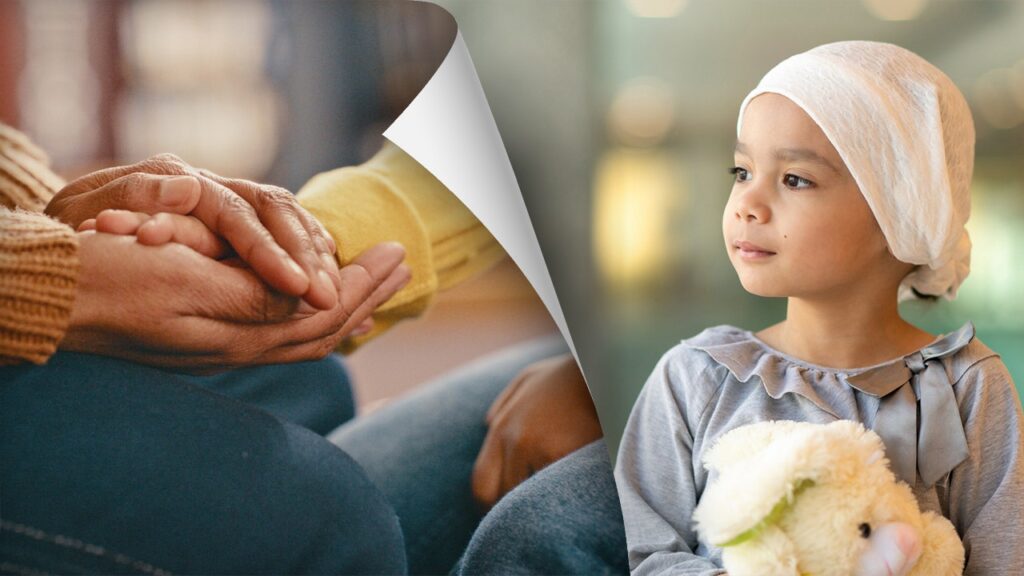Each year, a heart-wrenching reality unfolds for thousands of families across the globe; they receive the devastating news that their child has been diagnosed with cancer. According to the American Childhood Cancer Organization, approximately 400,000 children are diagnosed with cancer worldwide each year. This sobering statistic underscores the gravity of childhood cancer, a complex condition that often leaves families reeling in fear and uncertainty. The most prevalent types of cancers affecting children include leukemia, brain and spinal cord tumors, neuroblastoma, Wilms tumor, lymphoma, rhabdomyosarcoma, retinoblastoma, and various forms of bone cancer, as categorized by the American Cancer Society.
When faced with such a disheartening diagnosis, families often find themselves in dire need of support from their community and loved ones. The emotional weight of a cancer diagnosis can be overwhelming, not just for the child but for the entire family unit. To navigate this challenging period, friends and community members can step in to offer vital support, ensuring that families feel less isolated during their journey. Below are some thoughtful ways to lend a hand to parents coping with their child’s cancer diagnosis.
One of the most significant ways to facilitate support is through financial assistance. The costs associated with cancer treatment can rapidly escalate, creating a substantial financial burden on families. Individuals can alleviate some of this strain by fundraising on behalf of the family. Setting up a GoFundMe campaign, with the family’s permission, can be a straightforward yet effective means of raising funds. Additionally, organizing fundraising events, like a community 5K run or a benefit dinner, can unite people and foster camaraderie while bringing in much-needed funds. These gatherings serve a dual purpose: they raise financial support while also rallying the community around the affected family, providing a sense of solidarity.
In the midst of focusing on the child undergoing treatment, families with other children may inadvertently overlook their needs. A helpful way to support these families is to offer assistance with their other children. Engaging the siblings can be a tremendous help, as it allows parents to dedicate more time to their ill child without neglecting the needs of their other kids. Offering to drive them to after-school activities or arranging a fun outing can provide a much-needed distraction and create a sense of normalcy during an otherwise tumultuous time.
While it’s crucial to provide support, it’s equally important to respect the family’s need for space. Parents may go through various emotional stages and may sometimes want time alone to process their feelings. Understanding this emotional rollercoaster can help friends and relatives know when to engage and when to pull back. Families may not always articulate their need for solitude, and it is vital to be sensitive to their cues. Being supportive means recognizing that they may need quiet time to regroup with their loved ones, and respecting these moments is essential.
Another significant area where support can make a difference is in the household. The demanding nature of a cancer diagnosis can disrupt daily routines, leaving parents overwhelmed with both emotional and practical responsibilities. Offering to assist with chores around the house can relieve some pressure. Whether it’s preparing a simple meal, walking the family dog, or helping to tidy up, even small acts of kindness can add up to a considerable impact. Many families may hesitate to ask for help, so a proactive approach in offering assistance is often appreciated.
Lastly, listening can play a crucial role in supporting families facing childhood cancer. Emotions during this period can be intensely varied; providing a kind ear for venting or simply sharing feelings can be comforting. When engaging in conversation, it’s important to focus on being an empathetic listener rather than providing unsolicited advice or suggestions. The parents already have medical professionals guiding their child’s treatment, and your role is to offer emotional support rather than medical guidance. Being present and attentive is often the best way to show you care.
In summary, supporting families dealing with childhood cancer requires a multifaceted approach that balances emotional backing and practical help. From financial assistance and engaging siblings to respecting the need for space, providing household support, and simply listening, these actions can create a supportive environment for families in a time of dire need. Supporting these families is not merely a gesture; it’s an incredibly meaningful expression of love and community solidarity.



